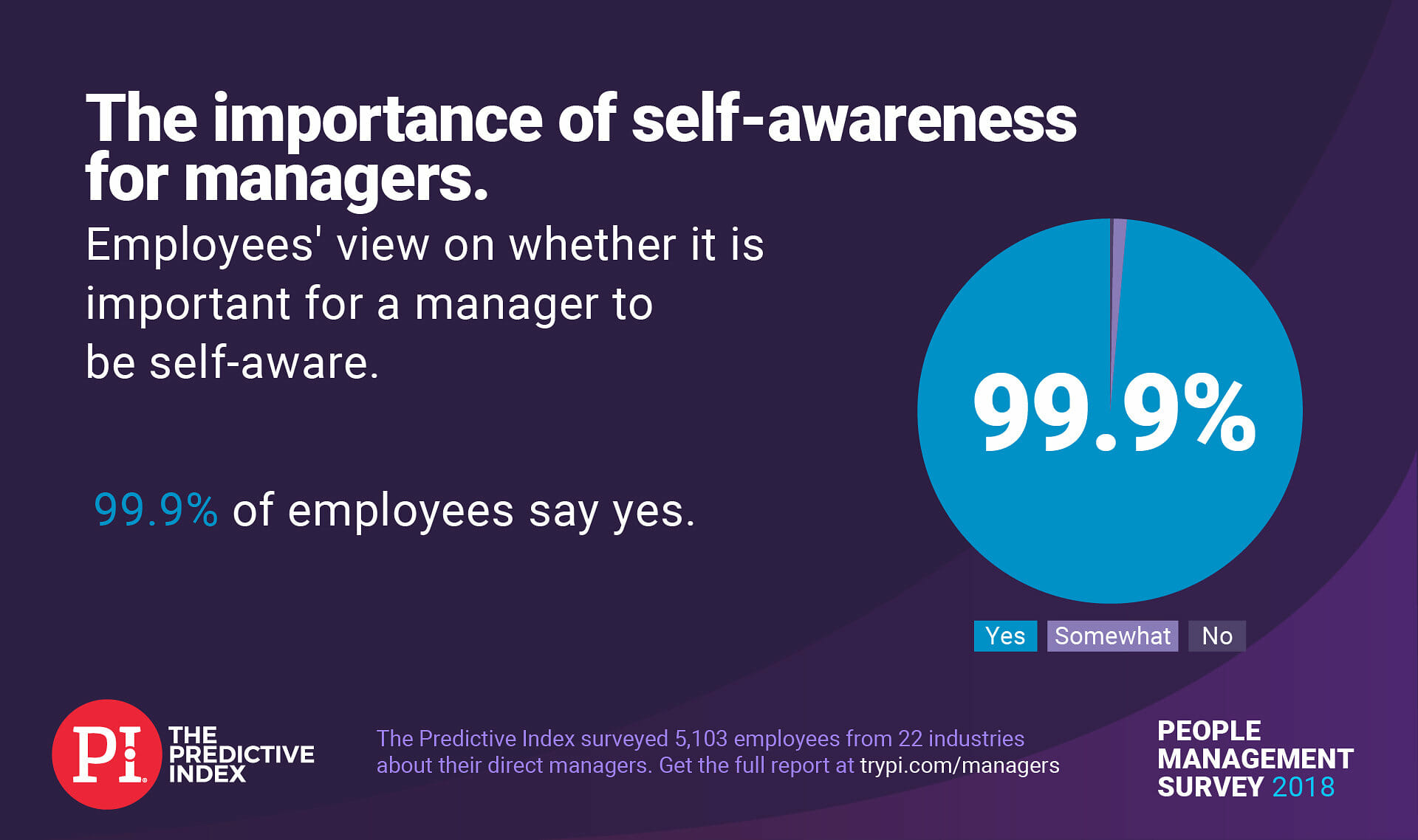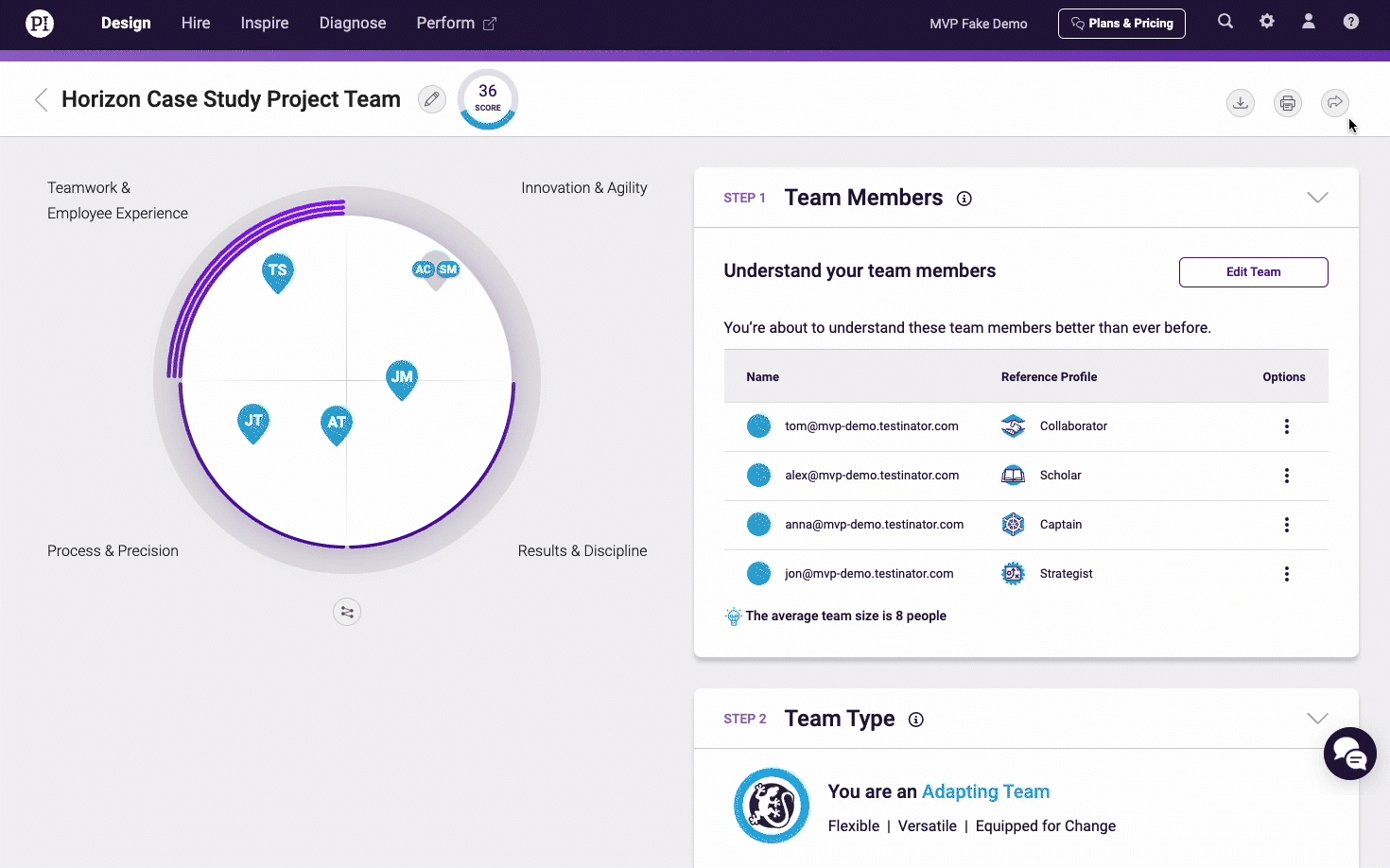As a leader, mindfulness needs to be in your toolbox. Why? Because being mindful helps you make measured, intelligent decisions. It enables you to accept the cards you’re dealt and deal with failure. It helps your employees have healthier minds and bodies. So what does mindfulness in the workplace actually look like?
To an outside observer, it looks like focus. But mindfulness is more than focus. It’s choosing not to worry about your looming deadlines. It’s hitting stop on the 60th replay of yesterday’s difficult conversation. It’s telling all the demanding little voices in your head that you can’t talk right now, so leave a message at the beep.
Mindfulness in the workplace is good for you and your employees—in more ways than one.
As a people manager, it’s critical to be self-aware. Being mindful at work helps you be in tune with your feelings and actions. And this means you can do a better job of leading and inspiring followership.

For leaders and employees, practicing mindfulness at work reduces stress, improves memory, and boosts your immune system. Some studies have shown that mindfulness even fights obesity.
With an eye on employee health, many companies (including Nike and Google) have invested in mindfulness programs. If you’d like to do the same, there are many different programs to help you train your mindfulness muscles. But if you’re not ready to put a formal program in place yet, that’s okay. Like physical exercise, you don’t need a complicated program to get a good workout in.
What is mindfulness?
Mindfulness is being in the present moment. Yes, it can be tough to make mindfulness a daily practice and to stay in a mindful headspace. (You’ve got to put value on it to make sure you do it.) But the concept of mindfulness in the workplace is actually quite simple.
When you’re in a mindful place, you’re observing:
- Your thoughts
- Your breathing
- The room’s lighting
- Background noises you hear
- Your bodily sensations
- The task you’re working on
Mindfulness will change your relationship with stress.
Cultivating mindfulness can’t end workplace stress altogether. You’ll still face nonstop phone calls and challenging clients. But mindfulness will change how these stressful situations affect you. Again, it’s all about building your self-awareness.
Here’s how mindfulness changes your relationship with stress:
When you’re faced with a stressful situation, your body responds. You might feel your heart rate rising or your jaw clenching tight. If you aren’t being mindful, you might react in a “below the line” way. You might say something out of anger or disappointment. Or you might head to the kitchen for a sugary snack (and the resulting dopamine hit).
But when you practice mindfulness at work, it’s different. You observe your body’s natural responses—and you observe your thoughts. Then you decide to change how you think about the situation. You choose to stay “above the line.” You choose to make a value-based decision based on what you want the future to look like. You know that anger and stress leads nowhere good, so you choose to go in a different direction.
You need to accept that certain stressors are part of the job—you can’t eliminate them, and that’s okay. You also need to recognize any aspects you can change and take action. There will always be challenging clients, but you can put a plan in place to reduce the number of them.
Train yourself to be mindful at work.
Everybody can train themselves to be mindful. If you find it difficult to step back from the constant noise in your head and around the office, you’re far from alone. It can take a few tries (and a lot of practice) to find a mindfulness routine that works for you.
Meditation is the most popular way to practice mindfulness. Not all meditation practices are the same. Meditation apps like Headspace and Insight Timer offer guided meditation sessions. If you find the narration distracting, opt for narration-free timed meditations. Give both a shot and stick with what works.
When I first started meditating, I really enjoyed the guided meditation exercises on Headspace. Currently, I’m using Insight Timer in a silent meditation mode. Creating stillness in a busy brain is difficult, but I try to acknowledge any thought that pops up, and then I try to whisk it aside without judgment so I can return my focus to my breathing.
The goal here is to keep yourself focused on the present throughout your meditation. Don’t view it as 10 minutes of quiet time to think about everything you have to finish by the end of the day.
Sometimes, you only have a minute or two—that’s plenty of time for a short mindfulness exercise. Take a moment to pause, breathe, and focus on the present moment. Try doing mindful exercises like this when you’re waiting for the elevator or walking to a meeting.

Bring mindfulness into your work routine.
Being mindful at work is way easier when your routine is set up for it. There are several ways to do this:
Build mindfulness into meetings.
Start each meeting with a minute of quiet time. This allows each participant to clear their mind and shift their focus onto the meeting. Creating presence and stillness before a meeting is key to opening up creativity and mindfulness.
In my sessions with my executive coach, she always leads us in a brief meditation so that we can center ourselves before we begin our work together.
You can also disallow multitasking during meetings.
Schedule mindfulness breaks.
Another way to make mindfulness part of your work routine is to schedule mindfulness breaks. Set an alarm to go off once a day, twice a day, or every 1.5 hours, whatever works for you. Use the alarm as your cue it’s time for a few minutes of mindfulness meditation.
Train yourself to stop and focus on the present any time you catch your mind wandering. And encourage everyone in the company to do the same. Imagine the learning that could happen if people actively listened to one another!
Make mindfulness a core value.
Promoting mindfulness in the workplace can help you establish a strong company culture. If you want employees to listen to and learn from each other, make mindfulness a core value. To reinforce your culture, reward individuals who exhibit mindfulness.
Join 10,000 companies solving the most complex people problems with PI.
Hire the right people, inspire their best work, design dream teams, and sustain engagement for the long haul.
Mindfulness in the workplace can extend beyond the office doors.
Practicing mindfulness at work is important, but it doesn’t have to end when you head home. Use your commute as an opportunity to shut the door on your workday. Silence your phone, turn off the radio, and focus on your breathing —at least for part of your commute. That way, you come home refreshed and ready to spend quality time with the people you love.








